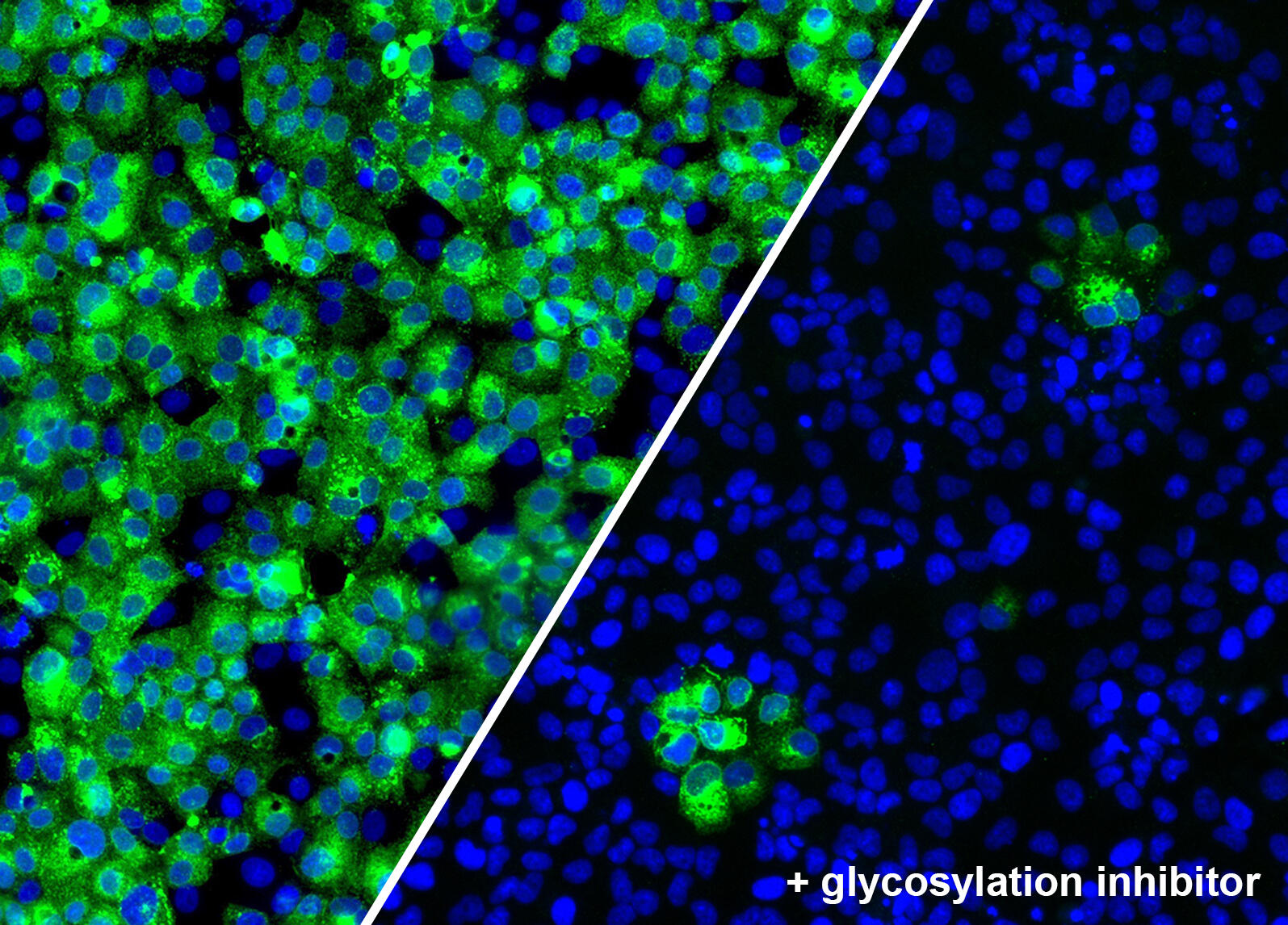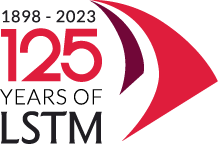
Researchers at LSTM have shown that by targeting glycosylation, a process by which SARS-CoV-2 (the infective agent of COVID-19) modifies its spike proteins to infect human cells, could potentially make new variants of the virus less infective.
The team carried out the work, the results of which are published in the journal mBio, and were able to validate the hypothesis that blocking the host cell glycosylation pathway is essential for virus infection, and that drugs that are already approved to treat human diseases could be repurposed for COVID-19.
Dr Aitor Casas-Sanchez, senior author on the paper, began working on the project as part of a project funded by LSTM’s Director’s Catalyst Fund, in collaboration with Dr. Alvaro Acosta-Serrano and Dr. Grant Hughes.
He explained: “At the beginning of the pandemic, we already knew the virus was modifying its spike proteins with multiple sugars, named ‘glycans’. We hypothesised these glycans must be important for the infection and soon our genetic and biochemical experiments demonstrated they were indeed essential. In this work, we now show that interfering with either the synthesis or attachment of these glycans to the spikes greatly reduces the spread of SARS-CoV-2 infection. Importantly, this seems to be a universal phenomenon, which we validated in Alpha, Beta, Gamma and Delta variants, and so it is likely that future variants will remain susceptible to glycan-targeted approaches."
The team also jointly secured a UKRI COVID response award to continue investigating new ways of exploiting glycosylation against COVID-19.
Dr. Alvaro Acosta-Serrano said: “The fact that we have shown that this pathway is a target, even with some drugs already approved for use, is an important step. As new SARS-CoV-2 variants -with various degrees of resistance against current vaccines- are likely to continue appearing, halting virus glycosylation using repurposed human drugs could result in a complementary strategy to reducing the spread of COVID-19 worldwide.”
mBio 15 February 2022
Inhibition of Protein N-Glycosylation Blocks SARS-CoV-2 Infection
Aitor Casas-Sanchez, Alessandra Romero-Ramirez, Eleanor Hargreaves, Cameron C. Ellis, Brian I. Grajeda, Igor L. Estevao, Edward I. Patterson, Grant L. Hughes, Igor C. Almeida, Tobias Zech, Álvaro Acosta-Serrano
DOI https://doi.org/10.1128/mbio.03718-21

LSTM’s 125 campaign aims to grow research seed funding to enable participation across our partner network and to support more unconventional, rebellious and breakthrough new ideas through Research Catalyst Challenges. Find out more